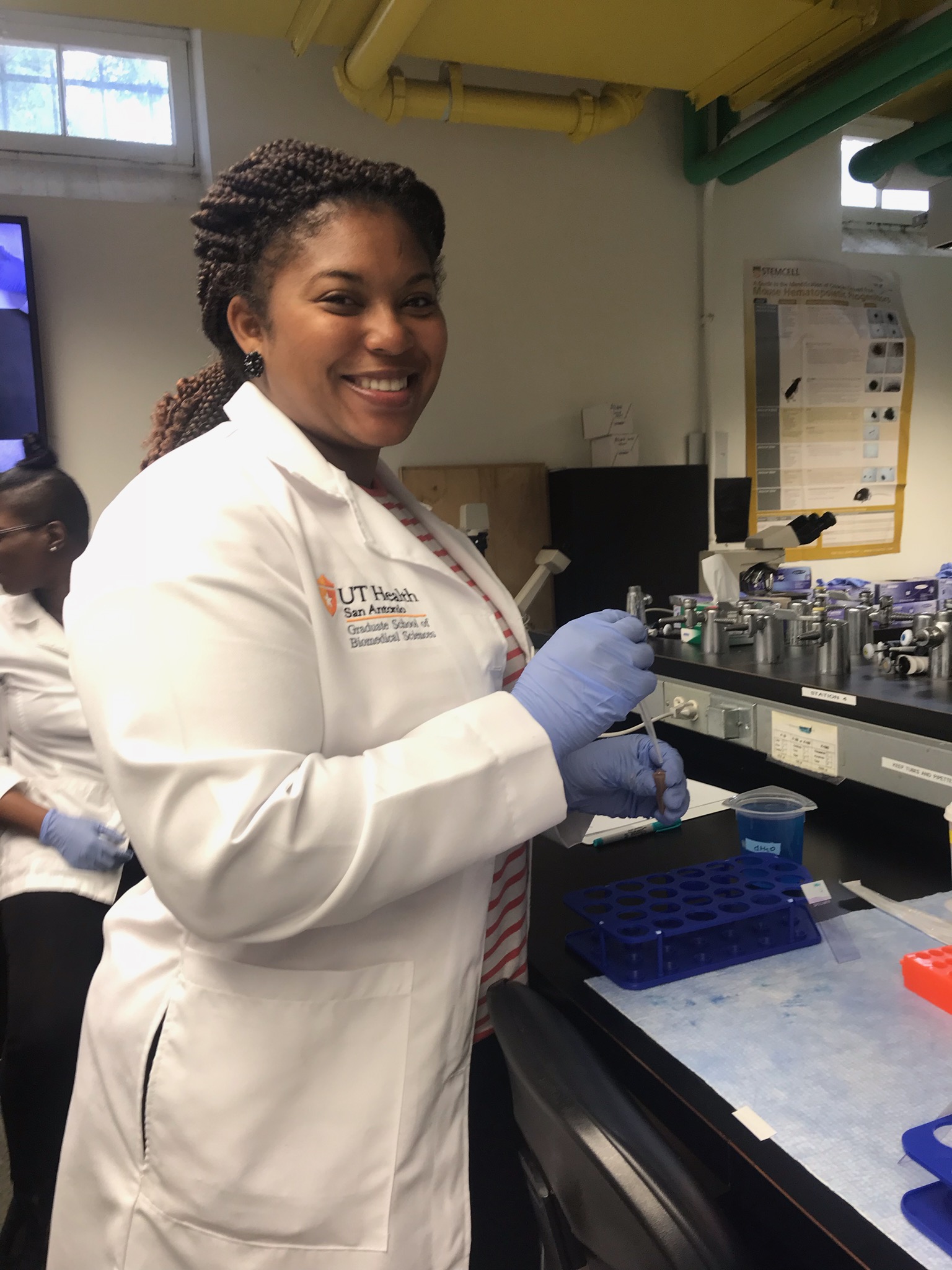ARTT Center of Excellence
Member Activities
Discovering Genetics: My Experience at the NIH Summer Genetic Institute
By: Kelly McGlothen-Bell, PhD, RN, IBCLC
In the more than 15 years since researchers completed the Human Genome Project, genomics and genetics have become integral to the provision of healthcare by providing essential information for better patient outcomes.
 As frontline providers, registered nurses (RNs) are expected to understand how genomics and genetics are interconnected with health, disease, condition management and intervention response. Particularly, in my corner of the world, we often question what role does genetics play in the addiction arena. Unfortunately, nurses receive very little training in the area of genetics during the baccalaureate programs, and nurse scientists must do some digging to find opportunities to explore genetic research and methodologies. For this reason, I applied to the National Institutes of Health (NIH)- Summer Genetics Institute sponsored by the National Institute of Nursing Research (NINR).
As frontline providers, registered nurses (RNs) are expected to understand how genomics and genetics are interconnected with health, disease, condition management and intervention response. Particularly, in my corner of the world, we often question what role does genetics play in the addiction arena. Unfortunately, nurses receive very little training in the area of genetics during the baccalaureate programs, and nurse scientists must do some digging to find opportunities to explore genetic research and methodologies. For this reason, I applied to the National Institutes of Health (NIH)- Summer Genetics Institute sponsored by the National Institute of Nursing Research (NINR).
The Summer Genetics Institute (SGI) is a one-month intensive research-training program at the NIH campus in Bethesda, Maryland. The SGI provides participants with a foundation in molecular genetics appropriate for use in research and clinical practice. The program seeks to increase the research capability among nursing graduate students and faculty and to develop and expand clinical practice in genetics among nurse clinicians.
When I applied to and was selected to this prestigious training program, I almost had to pinch myself! I, along with approximately 25 other nurse scientists from all over the nation, would be immersed in the often complicated and controversial world of genetics. This was a once in a lifetime experience!
To fully experience all that SGI had to offer, I knew that I had to put a lid on my almost overflowing pot of my imposter-syndrome. I was frequently told that this would be an experience that would change not only my way of thinking as a scientist, but also quite possibly change the trajectory of my research. Boy, were they right!
Days at SGI were filled with both didactic lectures and laboratory experiences. While I had little previous work in the lab setting, SGI instructors really took the time to ensure that we were all comfortable, and met us at our knowledge level.
I think that this approach really helped to boost my confidence; so much so that I was even able to give a presentation to my cohort on how genetics could influence my science. Through this experience, I learned another language and am leaving with a new vocabulary and understanding I can use in my research.
For those “SGIers” who don’t get their fill of science via the course, there are numerous opportunities to learn on campus. I had the opportunity to attend the NIH Wednesday Afternoon Lecture on Health Disparities in Genomics. Attending this session really opened my eyes to the ways in which clinical nursing, public health, and genetics/genomics intersect, and what role I can play in moving the needle of addressing health disparities through genetics. I also had the opportunity to speak with program officers and seasoned NIH researchers. Through these conversations, I realized that characterizing molecular and qualitative processes had clinical implications that were closely aligned to all of my research goals.
Learning both from both nurses and scientists from several other disciplines really opened my eyes to the many ways we can examine genetics. As nurses, we are acutely aware of the environmental and clinical factors that affect our patients. Coming to SGI broadened my perspective to now question genetic influences, including how these influences may vary across the genome to affect both interventions and health outcomes. This knowledge will be applied to my research with mother-infant dyads impacted by prenatal opioid exposure.
In the era of precision medicine, nurses will continue to act as mediators in their frontline roles at the bedside and in research. Opportunities to further explore the area of genetics are plentiful and continue to grow. I truly feel that my experience at SGI will be integral to my career trajectory. Combining genetics with other aspects of science is not just a trend, but is something that will pervade everything we do as we look to address issues in healthcare.

